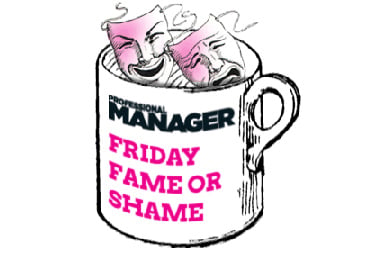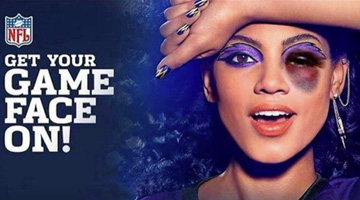How ad stunt over NFL image crisis tainted CoverGirl

Subversive use of social media leaves sponsor weathering same PR problem as football body
Will Edwards
This week has shown how even a brand associated with another organisation’s crisis can easily be dragged into reputational trouble.
Last weekend, a photoshopped advert from Procter & Gamble firm CoverGirl – featuring a female model with a black eye – went viral on the social web. The advert states: “BOYCOTT COVERGIRL ‘Official Beauty Sponsor of the NFL’ Until Roger Goodell Is Gone”.
It emerged following the recent leak of a video showing NFL player Ray Rice and his wife involved in a violent altercation in a lift. Given the NFL’s grip on US popular culture, the clip became a huge news story and put the organisation in an awkward spotlight. Indeed, the video led the Baltimore Ravens running back to be indicted, some months ago, for third degree aggravated assault against his wife – who in the footage appears to be beaten unconscious.

The NFL put out a statement at the time of the leak saying that they hadn’t seen a copy of the tape until the news broke. However, it’s become clear in the days since the leak that they actually received the tape in April. As a result, many people have called for NFL commissioner Rodger Goodell to be fired.
On Monday, CoverGirl – currently an NFL sponsor and coordinator of an “empowerment” programme for female fans – released a statement saying: “CoverGirl believes domestic violence is completely unacceptable … In light of recent events, we have encouraged the NFL to take swift action on their path forward to address the issue of domestic violence.”
The statement didn’t mention the altered advert that had made such an impact, and some commentators felt that the firm hadn’t done, or said, enough to address the situation.
Savvy social media users have quickly learnt that the way to make an impression on an organisation they have issues with is to hit them in the pocket. As such, sponsors in this fast-moving age of subversive social media memes are often dragged into crises. Obviously, being accused of “supporting” whatever the original entity has done, or been accused of doing, will often cause a sponsor to reconsider its relationship with the relevant business partner.
All sensible organisations should now be well aware that they need to put plans in place to handle a crisis if something goes wrong with their brands. But they need to realise that their reputations can also be threatened – unexpectedly and indirectly – by those they choose to do business with.
Will Edwards is managing director of media training consultancy Bluewood Training
Image: source.

Press & Media Enquiries
For more information or to request interviews, contact CMI's Press Team on 020 7421 2705 or email press.office@managers.org.uk


